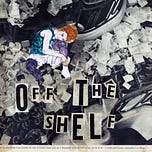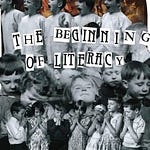Let me begin with a confession:
Sometimes it bothers me that we cannot relive the most important days of our lives.1
Similarly, I can get frustrated with fact that we cannot unread the most important stories we’ve been told—to be able to sit there on the last word, dumbfounded again by the knowledge that these events, whether they be truthful or fictional, were told to us—and that in that telling, they occurred in us, affected us, changed us, maybe ruined us a little bit for our own good.2
Yes, I know. It’s a little bit absurd: I’m annoyed that time itself is still unrepeatable, despite all our research attempts. And that some stories are actually not forgettable.
We’re twenty-somethings, so by now, we’ve experienced our fair share of personally formational moments that we might like to relive in order to observe and understand what was going on, to go a hundred layers deep. Whether it be a cultural phenomenon, like how technology has fundamentally shaped our lives, or a personal revelation, like the loss of faith in somebody we loved, we are becoming hyper-aware of how socially constructed we are. But what bothers me is that each formation occurs within millions of transitory details that get lost in time and memory—unless those details were important, in which case they were not really details.3
But either way, time passes.
And it passes. Whether it be an hour, week, or year, we start telling a story about that formational thing in a particular way. Our memories move like water, down the path of least resistance. We move so quickly, carving out an interpretation, then a narrative, then even an archetype of ourselves, because we simply don’t have the ability, the capacity, the therapy, the family, the community, the evidence, the time to slowly reexamine and “reread” these really important components of our own stories. Quite honestly, perhaps we’d all go a little insane if we did have that ability at all times to replay our lives like a movie. But the fact that we barely have the ability to reexamine life in the midst of life, especially with the things that matter most, is troublesome and frustrating.
Many of us, being the reflective yet practical folks that we are, recognize that this is problematic. So what we do is we prioritize getting done what we need to get done in order to survive, and then bank on having that ability to one day, one day, “finally have the time” to “look back and reflect” and “figure it all out”…?
At least, I know that’s what I do. I tell myself that I will “shelve that idea” and come back to it later. I experience formation and delay transformation.4
And I’m telling you, I am terrified of this waste. I fear this constant impulse to delay.
So this blog is a way for me to work against that delay.
With everything that is happening in our world, I, alongside you, am restless. I dislike these questions and observations just staying on the shelf, collecting dust. So I’m going to start pulling them off the shelf to ask:
What WAS this thing?
Why did I shelve it?
How do I react to it now?
How could I use it?
How does it change me, again?
Why does it matter?
So I’m calling this writing project Off the Shelf. The goal is to develop a better working memory of past significance, broadly speaking, and to try to experiment with the “hows” and “whys” of doing that. What types of
writing practice,
meditation,
reading,
conversation, and
decision-making
help these important parts of life—which can sometimes feel so easily out of reach—continue to generate meaning?
And then, beyond just “meaning,” generate good and helpful patterns of living, so it’s not reflection for the sake of reflection, but reflection for the sake of change?
So, what exactly do I want to write about here?
My intention is that Off the Shelf will explore mainly the following things:
how we’re growing up in this digital age,
what to think about how fast technology is moving and how hard it feels to keep up with,
thoughts on friendship and especially long-distance friendship,
living and thinking more justly, especially in relation to the reality of racial and gender violence,
boring-sounding stuff like information management that I think is actually quite great to promote,
books that meant a lot to me, but that are hard to crack open again,
how to have a reading practice with a full-time job,
grappling with the goods, the bads, and the uglies of growing up in a religious environment.
So yes, Off the Shelf is about pulling everything off the shelf. But if I were to put it into one word, this is a blog about relationship. And this page on the internet is the table upon which those pages will begin to turn again. So, if these thoughts sound like something you might want to read along to, then let me just say, thank you so much for pulling up a chair.
Lastly, I want to turn to what I hope the result of this will be.
I am here to kind of continue to befriend my friends to the best of my ability via my passion for writing. What I mean by that is, if you are listening to or reading this, you are likely my friend or are someone I have had the pleasure of meeting at some point in my life. I am not marketing or broadcasting this blog and have no intention to do that. That’s not because it’s private (please feel free to share this with your friends!), but because I am not writing to garner an “audience” right now. I also want to say that I’ll never monetize this blog. I talk about that more in the What is Off the Shelf page.
All in all, I’m publishing these things for the sake of having a conversation. That might take on a new shape down the road, but for now, I want these posts to be super honest, exploratory, succinct, and well-researched, but not necessarily conclusive or even complete. In fact, I think some of these posts might just be me telling you a story about something that happened to me, or a question that struck me five years ago that hasn’t reached full closure. I’m here to explore and excavate, but if we don’t end up with a dinosaur in a museum, that’s okay. Just revisiting the dig site is the main objective.
So that’s it. Thanks for reading this introduction.
Welcome to Off the Shelf!
I hope you enjoy what comes next, and please subscribe, so I can get to know you too. I promise I’ll only send you emails when I’ve written something new. :)
Curiously,
Lauren
Videos, photographs, holograms, and so forth don’t count. I mean, like, reliving.
Everybody knows that God did not make Abraham kill Isaac. But do you remember when you found that out? What if everyone could read that story (Genesis 22) at least one time and truly believe, up until the point where the angel appears, that God was asking Abraham to perform child-sacrifice and that Abraham was ACTUALLY going to do it? What if?
“I bought this tie for the interview to return it, so I left the tag on. Then the CEO noticed the tie’s tag tucked behind my tie. I was so embarrassed when he saw that I had left the tag on, but then, upon realizing my desperation, he hired me on the spot!” (Reference to Lost S2:E5). So is the tag a detail?
Meaning that I intentionally withhold some level of meaning-bearing. I talk about the formation as a mere fact of life rather than as something that had purpose: “This happened. It mattered. It means more, but I don’t know what, and I don’t know how to find it.”






